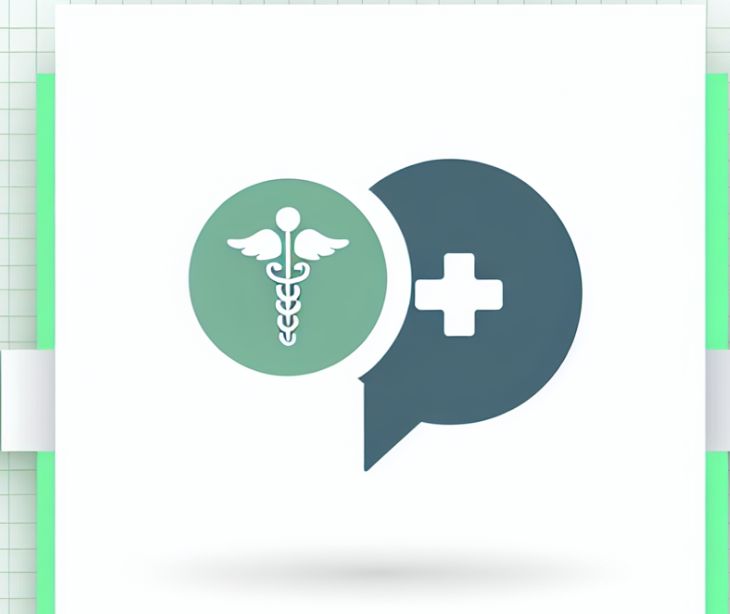4 min read
Using HIPAA compliant email to educate on family planning
Tshedimoso Makhene
June 9, 2025

The ability to communicate effectively and securely with patients is a pillar of quality healthcare, particularly when addressing sensitive topics like family planning. These conversations often involve deeply personal considerations, including reproductive goals, contraception, fertility, and broader aspects of sexual and reproductive health. Patients rely on healthcare providers for accurate information and for assurance that their privacy will be respected throughout the process.
According to a study titled Using quality-improvement techniques to enhance patient education and counselling of diagnosis and management, “Patients are often eager to understand and know more about their medical conditions and health situation, and educating them with the most relevant, current, consistent, and updated information helps patients and their families significantly in the medical care and decision-making process.”
HIPAA compliant email offers healthcare providers a secure channel to deliver tailored educational materials, appointment reminders, and answers to patient inquiries while maintaining confidentiality. HIPAA, or the Health Insurance Portability and Accountability Act, sets the standard for protecting sensitive patient data. Any email communication involving protected health information (PHI) must meet specific criteria for encryption, access control, and auditability. By leveraging HIPAA compliant email platforms, providers can share comprehensive information on contraception methods, fertility assessments, sexually transmitted infections (STIs), and prenatal or preconception care without compromising patient privacy.
Understanding the importance of family planning education
Family planning is the practice that helps individuals or couples anticipate and attain their desired number of children and the spacing and timing of their births. It includes information and services related to:
- Contraceptive options (e.g., pills, IUDs, implants)
- Fertility and infertility
- Preconception health
- Sexually transmitted infections (STIs)
- Pregnancy and postpartum care
Educating patients on these topics empowers them to make informed decisions about their reproductive health. Many patients, particularly those in underserved areas, do not have easy access to accurate, up-to-date family planning information. According to ChildTrends, “Compared to urban areas, rural communities are less likely to have sufficient SRH [sexual and reproductive health] providers and medical facilities. Rural family planning clinics are more likely be understaffed and under-resourced, and rural clinicians have lower levels of training—specifically in contraceptive provision—than their counterparts in urban areas. Rural patients also face low appointment availability, long travel times, and other logistical challenges, and privacy and confidentiality concerns. Furthermore, cost, lack of health insurance, and poverty are frequently noted barriers to accessing care for rural patients. Rural residents of color and immigrants in rural areas are disproportionately impacted by these barriers.” Similarly, a study titled Rural–Urban Differences in Awareness and Use of Family Planning Services Among Adolescent Women in California found that adolescents in rural areas were significantly less aware of and less likely to use family planning services than those in urban areas. Specifically, rural participants were less likely to know about a family planning provider in their community and less likely to have received family planning services. These studies demonstrate the need for targeted interventions to improve family planning awareness and education in rural communities.
HIPAA compliant email offers a practical and scalable channel to bridge this gap.
Read also:
- HIPAA compliant email for fertility and reproductive treatment
- How HIPAA compliant email can improve healthcare access for rural patients
Why HIPAA compliance matters in family planning emails
When a healthcare provider sends emails that contain or reference a patient’s reproductive health concerns, they are potentially handling PHI. Under HIPAA, any identifiable health information transmitted electronically must be protected through administrative, technical, and physical safeguards.
Key requirements include:
- Encryption: Emails must be encrypted in transit and at rest to prevent unauthorized access.
- Authentication: Access to email content should be limited to authorized users only.
- Consent: Patients must give informed consent before receiving communications.
- Business associate agreements (BAAs): Providers must ensure that email vendors handle PHI responsibly by signing BAAs.
Non-compliance can lead to costly fines and breaches of trust. Therefore, HIPAA compliant email solutions are essential when discussing sensitive issues like family planning.
Benefits of using HIPAA compliant email for family planning education
- Improved access to information: Email allows providers to reach patients directly in their inbox, overcoming barriers such as geography, transportation, or clinic hours.
- Personalized communication: With patient consent, providers can segment email campaigns based on age, health history, or interests, offering targeted education, such as contraception options for teens or fertility tips for couples trying to conceive.
- Engagement between visits: Email campaigns can serve as follow-ups to in-person consultations or as nudges to encourage preventive care actions like STD screening or prenatal visits.
- Cost-effective outreach: Compared to traditional brochures or seminars, email is relatively inexpensive, especially when using automated workflows and templates.
- Patient empowerment: Emails can link to interactive content—quizzes, webinars, or downloadable guides, encouraging patients to take an active role in their reproductive health.
Elements of a HIPAA compliant email system
According to the HHS, “the Privacy Rule allows covered health care providers to communicate electronically, such as through e-mail, with their patients, provided they apply reasonable safeguards when doing so.” These include:
- Encryption: All messages must be encrypted during transmission and while stored on servers. This protects PHI from interception or unauthorized access.
- Secure authentication: Recipients should be required to verify their identity to access email content.
- Consent management: Patients must opt-in to receive emails, with the ability to unsubscribe at any time. Providers should document when and how consent was obtained.
- Audit trails: HIPAA compliant platforms log access and delivery records, helping administrators monitor who sent and received information.
- Vendor agreements: If using third-party platforms, providers must ensure a signed BAA is in place to formalize responsibilities related to PHI handling.
The right HIPAA compliant email provider: Paubox
Selecting the right HIPAA compliant email provider is the first step in ensuring secure patient communications. Paubox stands out as a trusted solution, offering seamless encryption that requires no extra steps from the patient - no portals, passwords, or downloads. This ease of use is particularly valuable in patient education campaigns, where accessibility directly impacts engagement. Paubox also provides a signed business associate agreement (BAA), robust security controls, and integrated tools for marketing automation, making it ideal for healthcare organizations looking to scale their outreach while remaining compliant. For providers seeking a balance of convenience, functionality, and regulatory assurance, Paubox delivers a streamlined, secure platform that supports both patient privacy and proactive health communication.
FAQS
Is patient consent required for sending educational emails?
Yes. Patients must opt in to receive non-treatment-related emails, especially if the content contains or relates to PHI. Consent should be documented and patients must be given the option to opt out at any time.
What should I do if a patient unsubscribes?
Immediately honor all unsubscribe requests. HIPAA requires that patients be allowed to opt out of communications, and your email system should automate this process to ensure compliance.
Go deeper: What to do when an individual revokes authorization
Can third-party marketing agencies send HIPAA compliant emails on behalf of covered entities?
Only if they sign a BAA with your organization and follow all applicable HIPAA requirements. You are ultimately responsible for ensuring compliance, even when outsourcing.
Are HIPAA compliant email tools expensive or hard to integrate?
Not necessarily. Many providers offer scalable pricing based on practice size and integration capabilities with existing EHR or CRM systems. Paubox, for example, integrates with platforms like Google Workspace and Microsoft 365 without requiring major workflow changes.
Subscribe to Paubox Weekly
Every Friday we bring you the most important news from Paubox. Our aim is to make you smarter, faster.




